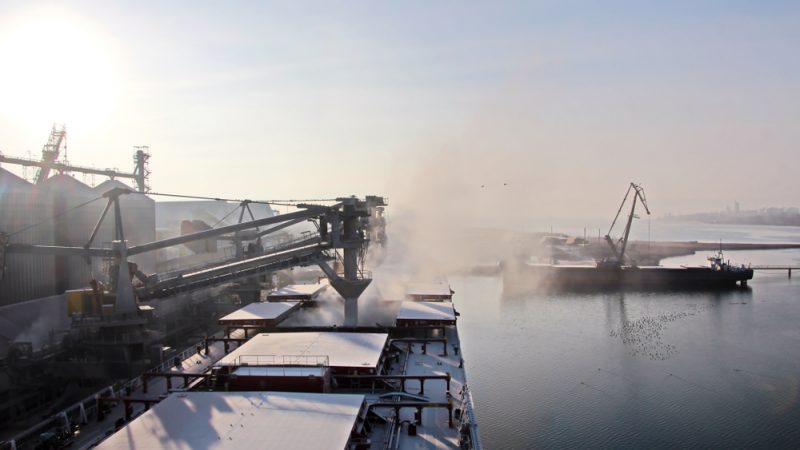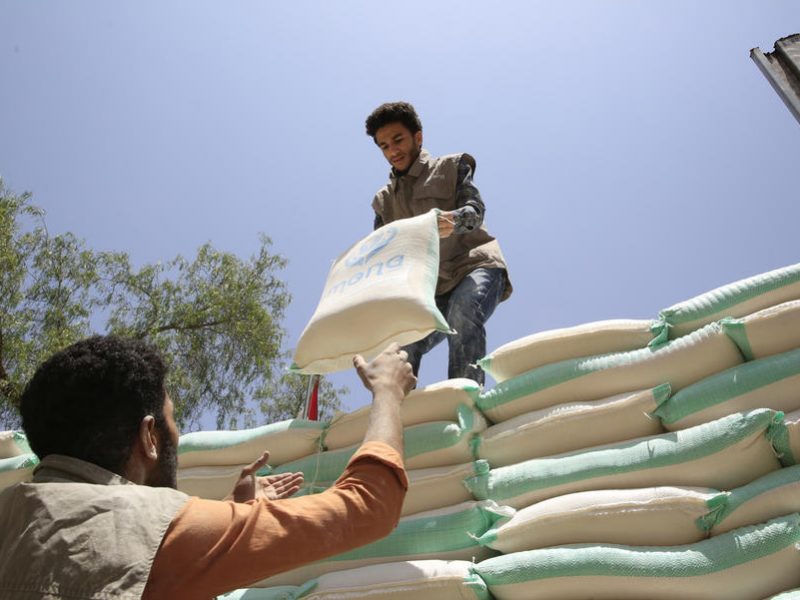A number of European countries have stepped up efforts to reopen maritime corridors for the transport of Ukrainian grain, possibly with the help of a third-party security guarantor, but it remains unclear if Russia would agree to any deal.
Russia has captured some of Ukraine’s biggest ports and its navy controls major transport routes in the Black Sea, blocking Ukrainian shipments and deepening a global food crisis in dependent countries across Africa and Asia.
Ukraine has said earlier it is working with international partners to create a United Nations-backed mission to restore Black Sea shipping routes and export Ukrainian farm produce.
“Ukraine is ready to create necessary conditions to resume exports from the port of Odesa,” Foreign Minister Dmytro Kuleba tweeted.
“The question is how to make sure that Russia doesn’t abuse the trade route to attack the city of Odesa. No guarantees from Russia so far. We seek solutions together with the UN and partners,” he added.
A military solution, involving NATO or an EU naval mission, for unblocking Ukraine’s seaports has been excluded due to the risk of potential involvement in the conflict.
Third-party guarantor
“We need to free the port by a third force that will [guarantee] security as an arbiter,” Slovakia’s Prime Minister Eduard Heger, told a GLOBSEC forum in Bratislava, speaking alongside Austria’s Chancellor Karl Nehammer on Friday (3 June).
The United Nations or Turkey could serve as potential security guarantors for reopening Ukraine’s port of Odesa to ensure the safe shipment of grain and food products stuck in the country, Heger said.
“That’s how we can get the grain,” he added, stressing that road and rail transport options would not offer sufficient capacity to carry the millions of tonnes of grain stuck in the country.
“We need the harbours [and] the most important question is how we reach that goal,” Austria’s Nehammer echoed. “The most important problem is that we don’t have the time – the world needs the grain now.”
The European Commission has been stepping up efforts in trying to coordinate the export of millions of tonnes of grain by road and rail infrastructure through neighbouring EU member states but has been running into infrastructure and capacity problems.
The best solution would be to re-channel a million tonnes of grain stuck in Ukraine via Belarus but this has been made difficult by demands from Minsk and Moscow to lift EU sanctions on Belarus.
Asked by EURACTIV whether they are willing to lift EU sanctions in exchange for unblocking the Black Sea, a price Russia’s President Vladimir Putin has hinted at, both prime ministers denied this could be a serious option.
“No question of sanctions in the question of bringing out the corn,” Nehammer said.
“Sanctions should definitely not be a question of whether he [Putin] will free the [Ukrainian] ports or not – this is a totally separate issue and should be treated as such,” Heger echoed.
Russia’s food diplomacy
“If we do not avert [the supply problems] we will see political chaos in Africa and Asia, and an ensuing migration crisis in Europe when people suffering from famine will seek refuge elsewhere,” Ukraine’s President Volodymyr Zelenskyy told the same audience a day earlier.
“Many governments will have to explain to protestors why our Continent is held hostage by one country and one person in Moscow that gave the order to put a maritime blockade on Ukraine,” Zelenskyy added.
Ukraine’s foreign ministry spokesman Oleg Nikolenko said on Thursday (2 June) Kyiv was calling on “countries whose food security may suffer more from Russian aggression against Ukraine to use their contacts with Moscow to force it to lift the blockade of Ukrainian seaports and end the war”.
However, Putin’s food propaganda and scaremongering seem to be falling on the fertile ground beyond Europe’s borders, especially in third countries scared of a potential famine.
EU leaders had appealed to African countries not to fall for a Russia-led propaganda campaign that pinned the blame for the current global food insecurity on Western sanctions against Moscow.
Senegalese President Macky Sall, currently chairing the African Union, headed to Sochi on Friday to implore Putin to release the grain and fertiliser stocks Russia holds hostage with its Black Sea blockade.
African countries are acutely affected by the growing crisis, which has sent prices of grains, cooking oils, fuel and fertilizer soaring.
After meeting the Russian president just three days after talks with EU leaders, Sall’s message was strikingly similar to Russia’s line on the matter.
“Putin had expressed to us his readiness to facilitate the export of Ukrainian cereals. Russia is ready to ensure the export of its wheat and fertilizer,” Sall said.
He did not say if Putin had attached any conditions to his offer but “called on all partners to lift sanctions on wheat and fertilizer”.
There are currently no Western sanctions on Russian wheat and very mild import quotas for Russian fertilisers.
[Edited by Zoran Radosavljevic]



